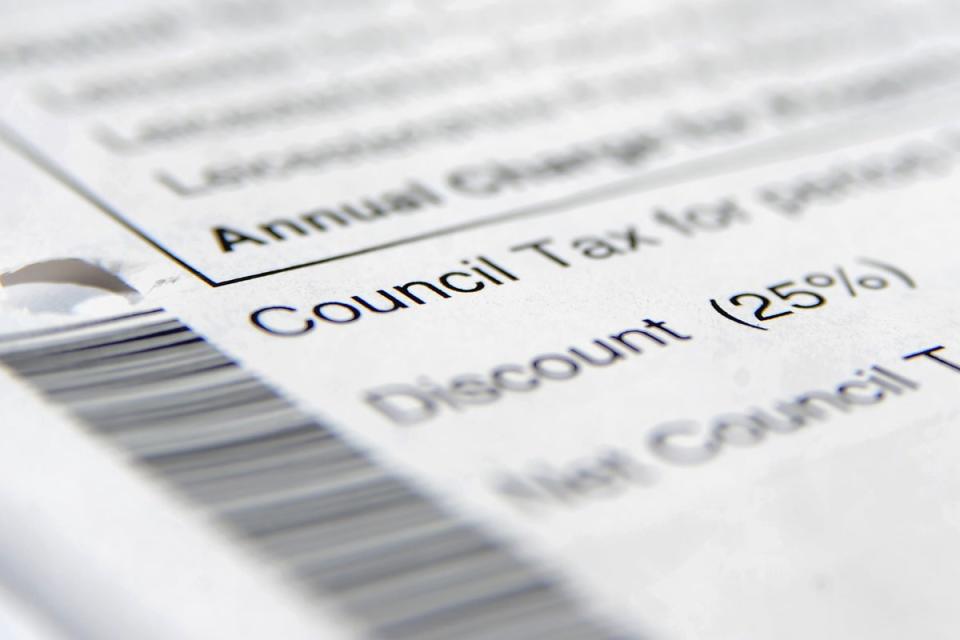Council tax average bills will top £2,000 for first time – see how much you’ll pay
The average council tax bill is set to top £2,000 for the first time next month as local authorities buckle under growing financial pressures.
Government figures released on Thursday show the average bill for band D properties will be £2,065 in 2023-24 – up by £99.
Households in metropolitan areas outside London will see bills rise by 5.1 per cent to an average of £2,059, while rural parts of the country will see an increase of 5 per cent to just below £2,140.
London will see the biggest annual percentage rise, with average bills increasing by 6.2 per cent. However, the capital’s average bill of £1,789 remains below other areas.
The Conservative-led County Councils Network, which represents local authorities that provided services to nearly half of the population in England, said the combination of a 4.8 per cent increase in local government funding and council tax flexibilities in 2023-24 was still not enough to cover rising costs and growing demand.
This map tells you how much the average council tax will be in your area:
CCN said the outlook for council finances looked “bleak” unless they were provided with greater financial certainty and government delivers long-promised “fair funding” reforms.
Carl Les, CCN finance spokesman and Conservative leader of North Yorkshire County Council, which covers Rishi Sunak’s Richmond constituency, said: “The additional funding provided by the chancellor at the autumn statement made a big dent in the unprecedented new costs councils face in 2023-24, but unfortunately it was not enough.

“We understand that residents are in the midst of a cost-of-living crisis, and many of us have reluctantly proposed maximum council tax rises.
“While councils will do all they can next year to deliver these savings whilst protecting vital services, particularly care services, there is already little fat to cut.”
He added that inflation rises were now “embedded into the future” after years of underfunding in county areas.
“The medium-term outlook looks bleak unless these higher costs are recognised and councils are given longer-term financial certainty, alongside delivering long-promised fair funding reforms.”
The financial settlement for local government in 2023-24 comprised £17 billion in direct funding, a cash terms increase of £789 million or 4.8 per cent on the previous year.
This means councils’ “core spending power”, which includes council tax revenue, increased by £5.1 billion to £59.7 billion, a rise of 9.4 per cent.
Top-tier councils, which are responsible for adult and children’s social care, are able to increase council tax to a threshold of five per cent, which includes the maximum two per cent social care precept, without a requirement to hold a local referendum.
A spokesperson for the Department of Levelling Up, Housing and Communities said: “We’ve given town halls the biggest cash increase in their spending power in 10 years, with an extra £3.7 billion this year to help them maintain and improve their services and more than £1 billion of additional money for social care.
“We are also providing £100 million of additional funding for local authorities to deliver additional support to most vulnerable households in England.”

 Yahoo Finance
Yahoo Finance 